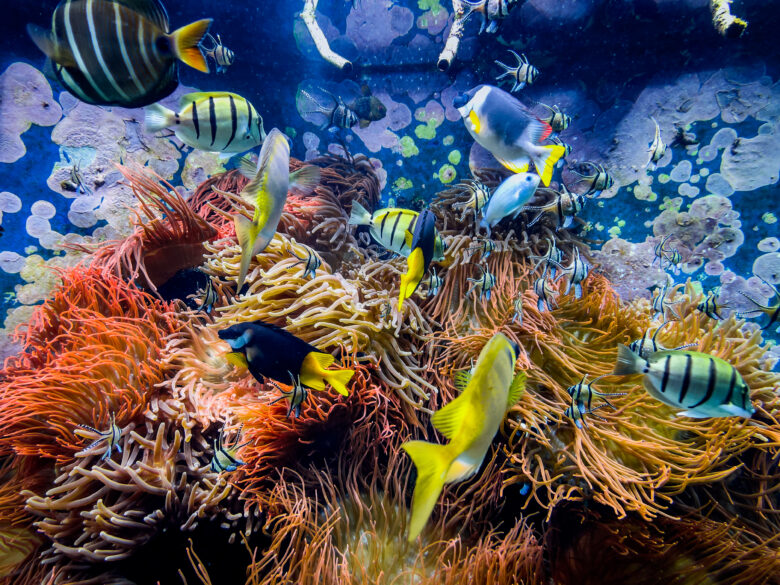The improper disposal of electronic waste (e-waste) is a growing environmental crisis, with devastating consequences for marine ecosystems. R2 Recycling, a leader in electronics waste management, is at the forefront of addressing this issue by ensuring e-waste is responsibly processed to protect our planet’s water resources.
The Journey of Improperly Disposed Electronics
When e-waste is discarded in landfills or improperly dumped, it often ends up in waterways. Rainwater can leach harmful substances from e-waste, carrying toxins like lead, mercury, and cadmium into rivers, lakes, and oceans. These pollutants not only degrade water quality but also threaten aquatic life.
E-waste can also enter marine environments through direct dumping, a practice that persists in some parts of the world due to inadequate waste management infrastructure. Once in the water, discarded electronics break down into microplastics and release toxic chemicals, compounding the damage to marine ecosystems. The journey of e-waste doesn’t end there; ocean currents can transport pollutants across vast distances, affecting marine life even in remote areas.
Consequences for Aquatic Ecosystems
The impact of e-waste on marine life is profound:
- Toxic Exposure: Chemicals leaching from e-waste can poison fish, shellfish, and other aquatic organisms. These toxins can accumulate in the food chain, posing risks to both wildlife and humans who consume seafood.
- Habitat Destruction: Dumping e-waste in rivers and coastal areas disrupts natural habitats, affecting biodiversity and the survival of aquatic species. The presence of e-waste can alter ecosystems, leading to long-term imbalances.
- Microplastic Pollution: As electronic components degrade, they contribute to the growing problem of microplastic pollution. These tiny particles are ingested by marine organisms, with far-reaching ecological consequences. Microplastics can also act as carriers for other pollutants, amplifying their harmful effects.
- Impact on Coral Reefs: Toxic substances from e-waste can affect coral reefs, which are vital marine ecosystems. Corals exposed to pollutants may experience bleaching, reduced growth, or death, endangering the many species that depend on them.
Long-Term Implications
The pollution of oceans and waterways has cascading effects on the environment and human health. Contaminated water supplies can harm communities, while the decline of marine ecosystems affects industries reliant on fishing and tourism. The loss of biodiversity in aquatic environments also undermines the resilience of these systems, making them more vulnerable to other environmental stressors.
Addressing e-waste pollution is critical to preserving the health of our planet’s water resources. If left unchecked, the growing volume of e-waste will exacerbate existing environmental challenges, including climate change and habitat loss.
Steps to Prevent E-Waste Pollution
- Proper Recycling Practices: Partnering with trusted e-waste management companies like R2 Recycling ensures that electronics are processed safely and responsibly. Proper recycling prevents hazardous materials from entering the environment and helps conserve natural resources.
- Community Awareness Campaigns: Educating the public about the impact of e-waste on water resources can drive behavioral changes and promote responsible disposal. Grassroots initiatives, such as clean-up drives and educational workshops, can inspire collective action.
- Stronger Regulations: Advocating for policies that prevent illegal dumping and promote recycling can help mitigate the flow of e-waste into waterways. Governments and organizations must work together to enforce stringent regulations and invest in waste management infrastructure.
- Corporate Responsibility: Encouraging businesses to work with R2 Recycling to manage their e-waste demonstrates leadership in environmental stewardship. Companies that prioritize sustainable practices set an example for others and contribute to broader environmental goals.
- International Collaboration: Given the global nature of e-waste pollution, international cooperation is essential. Sharing best practices, technologies, and resources can help address the problem more effectively.
R2 Recycling’s Commitment to Clean Water
R2 Recycling is dedicated to safeguarding the environment through comprehensive e-waste management solutions. By employing advanced recycling technologies and secure disposal methods, R2 Recycling ensures that hazardous materials are kept out of landfills and waterways. Their commitment extends to educating communities about the importance of proper e-waste disposal and advocating for sustainable practices.
Through partnerships with businesses, communities, and local governments, R2 Recycling is helping to combat marine pollution caused by e-waste. Their efforts highlight the importance of collective action in protecting our oceans and waterways for future generations. R2 Recycling also actively supports initiatives aimed at cleaning and restoring water ecosystems, showcasing their commitment to environmental preservation.
Improperly disposed electronics pose a severe threat to aquatic ecosystems, but through education, awareness, and responsible recycling practices, we can mitigate this crisis. By choosing to recycle electronics with R2 Recycling, we can take a significant step toward preserving our planet’s precious water resources. Together, we can build a future where clean oceans and healthy waterways are a reality for all.











Leave a Reply